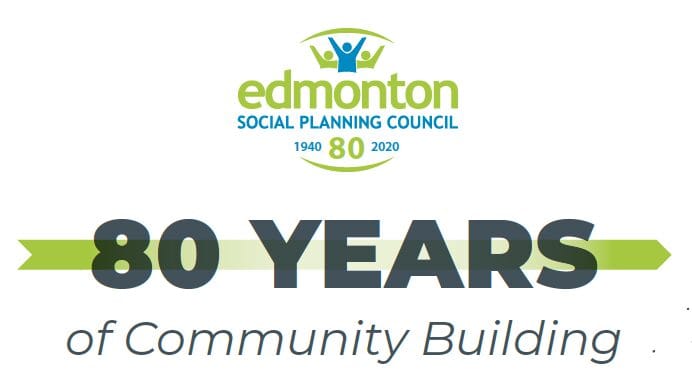[et_pb_section fb_built=”1″ _builder_version=”4.7.0″ custom_margin=”0px||0px||false|false” custom_padding=”0px||0px||false|false”][et_pb_row column_structure=”3_4,1_4″ use_custom_gutter=”on” gutter_width=”2″ _builder_version=”4.7.7″ _module_preset=”default” width=”100%” custom_margin=”0px||||false|false” custom_padding=”0px||0px||false|false” border_width_bottom=”1px” border_color_bottom=”#a6c942″][et_pb_column type=”3_4″ _builder_version=”4.7.0″ _module_preset=”default”][et_pb_post_title meta=”off” featured_image=”off” _builder_version=”4.7.4″ _module_preset=”default” title_font=”||||||||” custom_margin=”||3px|||” border_color_bottom=”#a6c942″][/et_pb_post_title][/et_pb_column][et_pb_column type=”1_4″ _builder_version=”4.7.0″ _module_preset=”default”][et_pb_image src=”https://edmontonsocialplanning.ca/wp-content/uploads/2020/12/COLOUR-BLOCKS_spaced-300×51.png” title_text=”COLOUR BLOCKS_spaced” align=”center” _builder_version=”4.7.7″ _module_preset=”default” max_width=”100%” max_height=”75px” custom_margin=”0px|0px|0px|0px|false|false” custom_padding=”10px|0px|20px|0px|false|false” global_module=”96648″][/et_pb_image][/et_pb_column][/et_pb_row][et_pb_row column_structure=”3_4,1_4″ use_custom_gutter=”on” gutter_width=”2″ make_equal=”on” _builder_version=”4.7.7″ background_size=”initial” background_position=”top_left” background_repeat=”repeat” width=”100%” custom_margin=”0px|auto|0px|auto|false|false” custom_padding=”30px|0px|0px|0px|false|false”][et_pb_column type=”3_4″ _builder_version=”4.5.6″ custom_padding=”0px|0px|0px|0px|false|false” custom_padding__hover=”|||”][et_pb_text _builder_version=”4.7.5″ _dynamic_attributes=”content” _module_preset=”default” text_font=”|600|||||||” text_text_color=”#2b303a” custom_padding=”||32px|||”]@ET-DC@eyJkeW5hbWljIjp0cnVlLCJjb250ZW50IjoicG9zdF9kYXRlIiwic2V0dGluZ3MiOnsiYmVmb3JlIjoiIiwiYWZ0ZXIiOiIiLCJkYXRlX2Zvcm1hdCI6ImRlZmF1bHQiLCJjdXN0b21fZGF0ZV9mb3JtYXQiOiIifX0=@[/et_pb_text][et_pb_button button_url=”https://edmontonsocialplanning.ca/wp-content/uploads/2021/01/ESPC-80th-Booklet_web.pdf” button_text=”Download 80 Years of Community Building (PDF)” _builder_version=”4.7.7″ _module_preset=”default” custom_button=”on” button_text_color=”#ffffff” button_bg_color=”#008ac1″ custom_margin=”||19px|||” custom_padding=”||5px|||”][/et_pb_button][et_pb_button button_url=”https://edmontonsocialplanning.ca/wp-content/uploads/2021/01/ESPC-Timeline_web.pdf” button_text=”Download 80 Years of Community Building Companion Timeline (PDF)” _builder_version=”4.9.3″ _module_preset=”default” custom_button=”on” button_text_color=”#ffffff” button_bg_color=”#008ac1″ custom_margin=”||19px|||” custom_padding=”||5px|||”][/et_pb_button][et_pb_button button_url=”https://edmontonsocialplanning.ca/history/” button_text=”Our History” _builder_version=”4.9.3″ _module_preset=”default” custom_button=”on” button_text_color=”#ffffff” button_bg_color=”#008ac1″ custom_margin=”||19px|||” custom_padding=”||5px|||”][/et_pb_button][et_pb_text _builder_version=”4.9.3″ text_text_color=”#2b303a” text_line_height=”1.6em” header_2_font=”||||||||” header_2_text_color=”#008ac1″ header_2_font_size=”24px” background_size=”initial” background_position=”top_left” background_repeat=”repeat” text_orientation=”justified” width=”100%” module_alignment=”left” custom_margin=”0px|0px|0px|0px|false|false” custom_padding=”25px||||false|false” locked=”off”]
The impact that the Edmonton Social Planning Council has had on different communities in Edmonton, Alberta, and even to some extent Canada, is so extensive that it could fill up an entire library. In fact, it has filled up more than 30 boxes worth of material housed at the City of Edmonton Archives! This 80th anniversary year provided a great opportunity to research an extensive and storied history.
This publication, 80 Years of Community Building, is our best attempt to share that history. The story of the Edmonton Social Planning Council is also partly a story of Edmonton as a city. It records the times that social agencies, community groups, and passionate citizens with diverse experiences joined together to build a community that now prioritizes the common good—seeking to uplift marginalized populations for the benefit of everyone.
Our organization has gone by a number of different names over the years. In the 1940s it was the Edmonton Council of Social Agencies; in the 1950s it was called the Edmonton Council of Community Services; then in 1963, the Edmonton Welfare Council; and the Edmonton Social Planning Council in 1967. These changes generated an evolution in focus areas, function, and objectives. During these 80 years, the Council has seen incredible growth, shifts in priorities, and has re-calibrated itself to address the city’s needs and concerns, adapting to the times and social habits. It has tackled issues such as child welfare, urban planning, newcomer integration, community development, mental health, public transportation, persons with disabilities, Indigenous peoples, women’s shelters, participatory democracy, homelessness, poverty reduction, food security, and affordable housing through contributions of research, administrative or consultative support, and advocacy.
To process 80 years’ worth of these achievements can be dizzying and overwhelming, but can also be a source of great pride and inspiration. Remembering our history can provide direction to chart a path towards the next 80 years of building a community in which all people are full and valued participants.
[/et_pb_text][/et_pb_column][et_pb_column type=”1_4″ _builder_version=”4.7.4″ custom_padding=”0px|20px|0px|20px|false|false” border_color_left=”#a6c942″ custom_padding__hover=”|||”][et_pb_testimonial author=”Posted by:” job_title=”@ET-DC@eyJkeW5hbWljIjp0cnVlLCJjb250ZW50IjoicG9zdF9hdXRob3IiLCJzZXR0aW5ncyI6eyJiZWZvcmUiOiIiLCJhZnRlciI6IiIsIm5hbWVfZm9ybWF0IjoiZGlzcGxheV9uYW1lIiwibGluayI6Im9uIiwibGlua19kZXN0aW5hdGlvbiI6ImF1dGhvcl93ZWJzaXRlIn19@” portrait_url=”@ET-DC@eyJkeW5hbWljIjp0cnVlLCJjb250ZW50IjoicG9zdF9hdXRob3JfcHJvZmlsZV9waWN0dXJlIiwic2V0dGluZ3MiOnt9fQ==@” quote_icon=”off” portrait_width=”125px” portrait_height=”125px” disabled_on=”on|off|off” _builder_version=”4.7.7″ _dynamic_attributes=”job_title,portrait_url” _module_preset=”default” body_text_color=”#000000″ author_font=”||||||||” author_text_align=”center” author_text_color=”#008ac1″ position_font=”||||||||” position_text_color=”#000000″ company_text_color=”#000000″ background_color=”#ffffff” text_orientation=”center” module_alignment=”center” custom_margin=”0px|0px|4px|0px|false|false” custom_padding=”32px|0px|0px|0px|false|false”][/et_pb_testimonial][et_pb_text disabled_on=”on|off|off” _builder_version=”4.7.7″ _dynamic_attributes=”content” _module_preset=”default” text_text_color=”#000000″ header_text_align=”left” header_text_color=”rgba(0,0,0,0.65)” header_font_size=”20px” text_orientation=”center” custom_margin=”||50px|||” custom_padding=”48px|||||”]@ET-DC@eyJkeW5hbWljIjp0cnVlLCJjb250ZW50IjoicG9zdF9jYXRlZ29yaWVzIiwic2V0dGluZ3MiOnsiYmVmb3JlIjoiUmVsYXRlZCBjYXRlZ29yaWVzOiAgIiwiYWZ0ZXIiOiIiLCJsaW5rX3RvX3Rlcm1fcGFnZSI6Im9uIiwic2VwYXJhdG9yIjoiIHwgIiwiY2F0ZWdvcnlfdHlwZSI6ImNhdGVnb3J5In19@[/et_pb_text][et_pb_code _builder_version=”4.9.4″ _module_preset=”default” text_orientation=”center” hover_enabled=”0″ sticky_enabled=”0″][3d-flip-book mode=”thumbnail-lightbox” id=”130211″ title=”true”][/3d-flip-book]
Click on image to view online.
[/et_pb_code][/et_pb_column][/et_pb_row][/et_pb_section]
